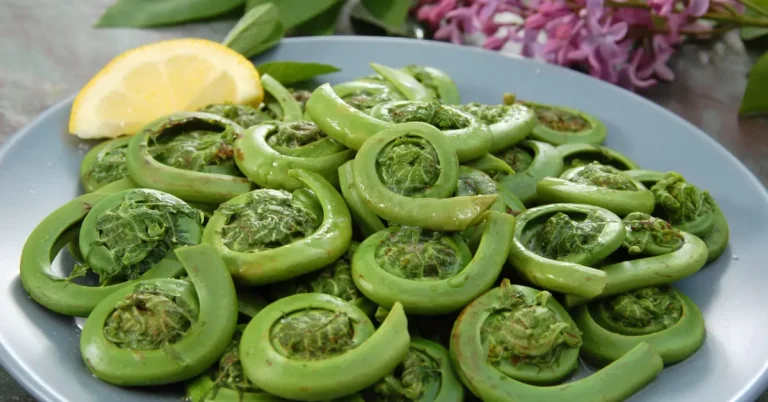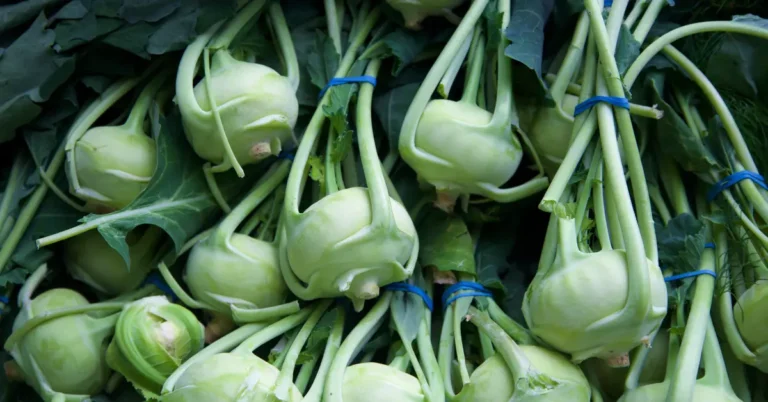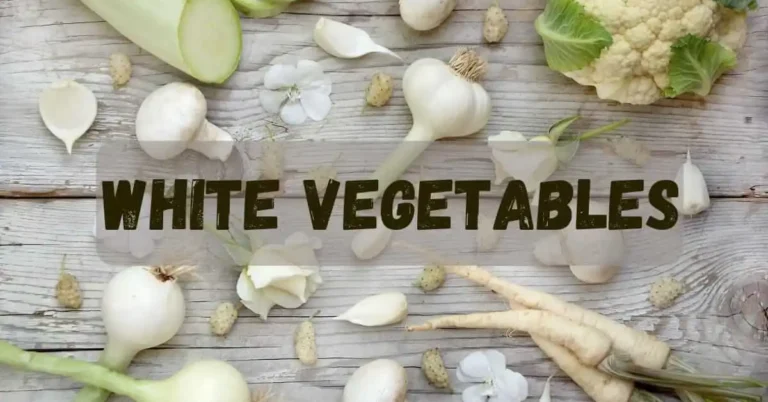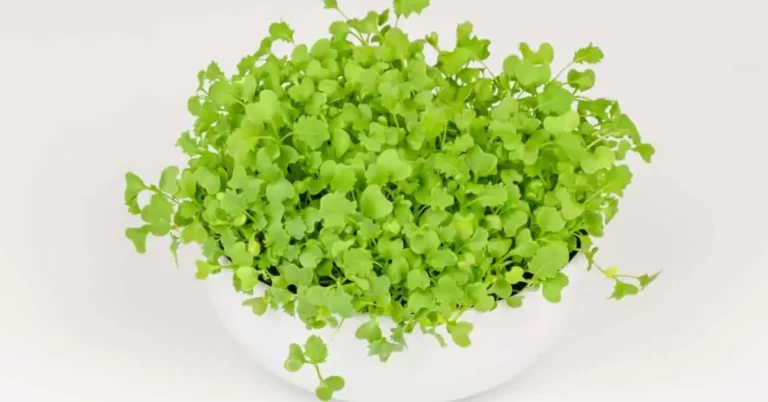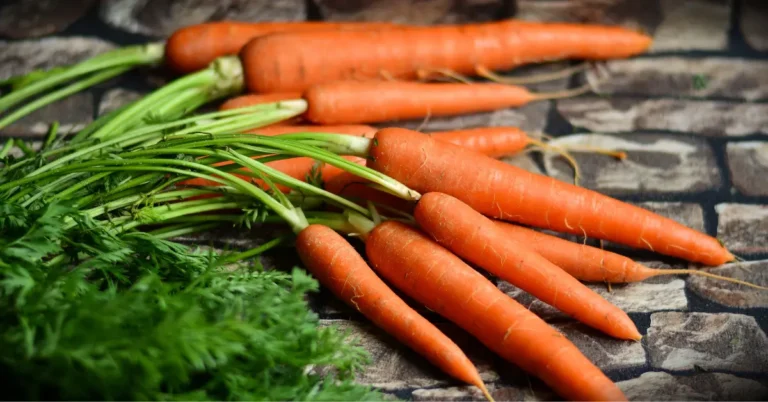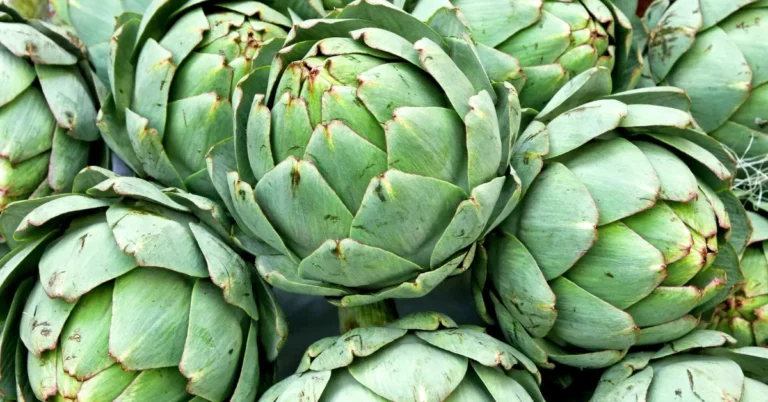Vegetables That Start with J
When it comes to vegetables, numerous varieties are available in the market. Each vegetable has its unique taste, texture, and health benefits. Some of the many vegetables start with the letter J and are often overlooked. This blog post will enlist and explore the top 9 vegetables that start with J. From exotic vegetables to commonly available ones, we will cover a range of veggies, providing information on their origin, nutritional profile, and tips on adding them to your diet.
List of Vegetables That Start With J
Here is a list of vegetables that start with J. How we can add them to our diet & know their health benefits.
1. Jerusalem Artichoke
Also known as sunchoke, Jerusalem artichoke is a root vegetable native to North America. It is usually tan or reddish and has a nutty and mildly sweet taste. This vegetable is an excellent fiber, potassium, and iron source known to improve digestion and boost immunity.
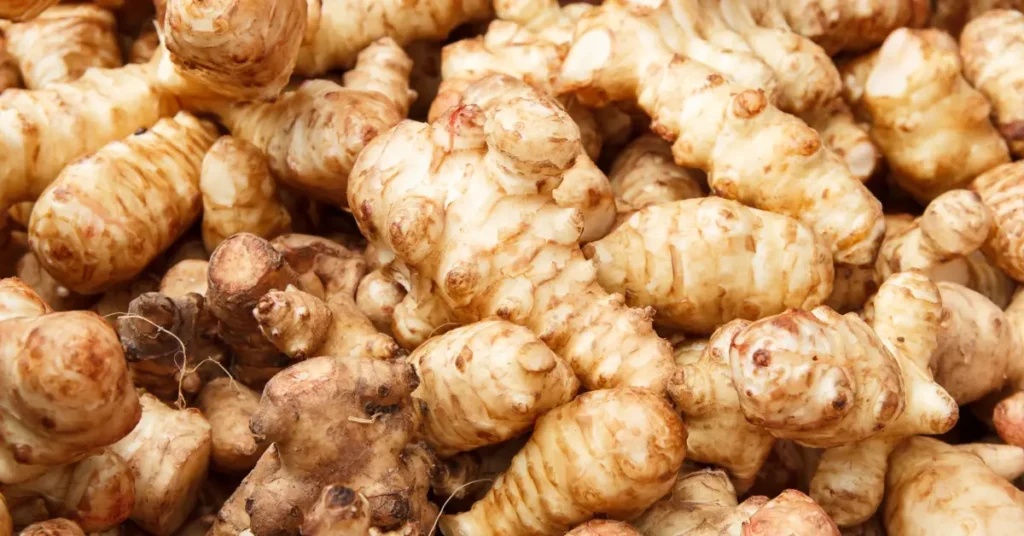
2. Jalapeno Pepper
Jalapeno pepper is a popular vegetable that is widely used in Mexican dishes. It is a small green pepper that has a mild to medium level of spiciness. Jalapenos are rich in vitamins A and C and contain capsaicin, which has anti-inflammatory and pain-relieving properties.
3. Jicama
Jicama is a root vegetable that is native to Mexico. It has a crunchy texture and a mildly sweet taste. This vegetable is low in calories and fiber, making it an ideal addition to weight-loss diets. It is also a good source of vitamin C and potassium, which helps improve heart health.
4. Jute
Jute, or Chinese okra, is a popular vegetable in Asian cooking. It has a long and slim shape, similar to okra, but with ridges on the surface. Jute is low in calories and fiber, making it an excellent vegetable for weight management. It is also rich in antioxidants and has anti-inflammatory properties.
5. Jerusalem Sage
Jerusalem sage is a green and leafy vegetable known for its distinct aromatic scent. It tastes slightly bitter and can be cooked like spinach or used as a garnish in salads. This vegetable is an excellent source of vitamins A and C, iron, and antioxidants, which help boost immunity and promote healthy skin.

6. January King Cabbage
January King cabbage, also known as Savoy cabbage, is an heirloom variety known for its tightly packed, ruffled leaves. It has a slightly sweet taste and a crisp texture. This cabbage is high in vitamin C and potassium and is rich in antioxidants, which are beneficial for heart health and digestion.
7. Jewel Yam
Jewel yam, or Dioscorea alata, is a large root vegetable widely cultivated in tropical regions. It has a pale, creamy flesh and is commonly used in curries, soups, and stews. This yam is high in fiber and low in calories, making it a nutritious addition to a balanced diet. It is also a good source of vitamins B6 and C, potassium, and iron.
8. John Dory Mushroom
John Dory mushroom, also known as black trumpet mushroom, is a wild mushroom found in European and North American forests. It has a trumpet-like shape and a blackish-brown color. These mushrooms are rich in vitamins B and D, copper, and zinc and have anti-inflammatory and immune-boosting properties.
9. Jalapilla
Jalapilla, also known as Thai sweet pepper, is a small, sweet, round pepper native to Thailand. It has a mild heat and is commonly used in stir-fries and salads. Jalapilla is a good source of vitamin C, and its capsaicin content may aid in weight loss by boosting metabolism and reducing appetite.
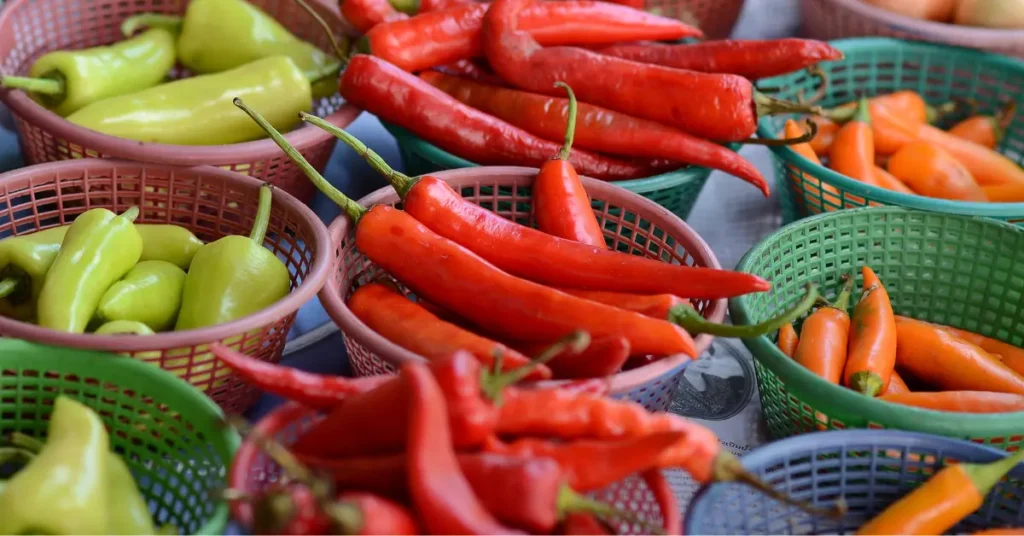
What Are the Nutritional Benefits of Eating Vegetables That Start With J?
Vegetables that start with J are packed with essential nutrients that benefit our health. Some of the essential nutritional benefits of eating these veggies include:
- Fiber: Most vegetables that start with J are high in dietary fiber, essential for maintaining a healthy digestive system, promoting bowel regularity, and keeping us full and satisfied after meals.
- Vitamins and minerals: Vegetables like Jerusalem artichoke, jicama, and Japanese eggplant are all rich in vitamins and minerals such as vitamin C, folate, and potassium, which are essential for various bodily functions and in maintaining overall health.
- Antioxidants: Many of the vegetables on this list, including jute and Johnny Jump-Up, are high in antioxidants that help fight against free radicals, which can cause damage to our cells and lead to chronic diseases.
- Anti-inflammatory properties: Several vegetables that start with J, such as Jerusalem artichoke, Johnny Jump-Up, and jar tomato, have shown anti-inflammatory properties, which can help alleviate pain and reduce the risk of inflammation-related conditions.
How do you add These Vegetables to Your Diet?
Here are some tips on how you can add these vegetables to your diet:
Root Vegetables:
- Jerusalem Artichoke: Roast them with other root vegetables like carrots and parsnips for a flavorful side dish. You can also shred them raw and add them to salads for a nutty flavor boost.
- Jicama: Enjoy jicama sticks with a healthy dip like hummus or guacamole for a refreshing and crunchy snack. You can also julienne them and add them to stir-fries or salads.
- Jewel Yam: Similar to sweet potatoes, jewel yams can be roasted, mashed, or baked into fries. Their creamy flesh makes them perfect for curries, soups, and stews.
Leafy and Spicy:
- Jerusalem Sage: Sauté or steam Jerusalem sage leaves like you would spinach. Add them to pasta dishes and omelets, or use them as a pizza topping.
- Jalapeno Pepper: The classic way to enjoy jalapenos is sliced on top of tacos, nachos, or burgers. You can also roast them and add them to salsas or dips. For a milder flavor, remove the seeds before using.
Other Interesting Vegetables:
- Jute: Like okra, jute can be sliced and added to stews, soups, or stir-fries. Its slightly slimy texture thickens soups and adds a unique flavor.
- January King Cabbage: Use Savoy cabbage in place of regular cabbage for a milder flavor in coleslaw or sauerkraut. The ruffled leaves are also great for stuffing.
- Jalapilla: Slice jalapilla peppers and enjoy them raw in salads or stir-fries. They add a touch of sweetness without the heat.
- John Dory Mushroom: Since John Dory mushrooms are wild, they may be harder to find fresh. If you find them, dried mushrooms can be reconstituted and added to soups, stews, or pasta sauces for a rich umami flavor.

